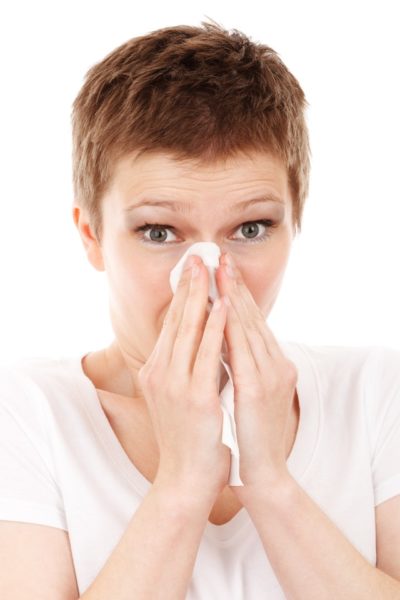Cold is very common. This viral infection manifests itself in a blocked nose, sneezing, sore throat and sometimes a mild cough. Should I consult? How do I know if it’s not a flu? How to avoid it? And if not, how can we not pass it on to the whole family?
Colds are extremely contagious
With the onset of winter cold, the body is less resistant and immune defences are less effective. This is how the people who suffer from colds are most vulnerable at any given time.
Children are the most affected. They contract an average of six colds each year. Their immune system is still immature, but viruses are particularly contagious, so community life (preschool, daycare, kindergarten) also plays an important role.
The frequency of colds then decreases with age. The adult is affected about 2 to 3 times a year and the elderly once, or not at all, because the body is then immune to the viruses responsible for colds.
How to avoid a cold?
The safest way to avoid catching a cold is to make sure you don’t weaken your immune system.
- Deal with stress because it undoubtedly affects the immune system: yoga, relaxation….
- Exercise regularly a physical activity: half an hour of walking per day for the most sedentary, it’s a good idea!
- Eat well-balanced, varied and enough: this is really not the time to start a restrictive diet.
- Get enough sleep and go to sleep at regular bedtime.
How can you avoid passing on your cold to others?
Viral transmission is based on hygiene:
- Wash your hands regularly and teach children how to do it properly: water and soap, lather for more than a minute, from nails to wrists.
- Do not exchange cutlery, glasses, washing mitts, etc.
- Avoid putting your hands on your face as much as possible.
- Ideally, wear a mask when or cover your face when sneezing or coughing.
- Do not kiss if you have a cold, avoid handshakes and postpone certain visits (sick people, the elderly, young children).
- Do not kiss a toddler on the face when viruses are circulating.
How can I identify a cold from the flu?
Influenza is characterized by intense symptoms, which begin very abruptly and usually require you to stay in bed (fever, headaches, muscular pain, aches and pains, severe fatigue, etc.). Conversely, the symptoms of a cold gradually set in and are less intense: low fever, slight headaches, pain, tiredness and weakness, runny nose, congested, sneezing and sometimes a slight cough, tears.

Should I consult in case of a cold?
If it is a flu (intense symptoms of very sudden onset of the flu), you should consult as soon as possible in order to benefit from antiviral treatment.
But you don’t need to consult your doctor as soon as you catch a cold.
On the other hand, if the cold symptoms last for more than ten days, they most certainly indicate the presence of complications. It then becomes necessary to go to the doctor.
For children, it is most often an otitis media. But a cold can also degenerate into sinusitis, bronchitis, pharyngitis or even pneumonia. It should also be noted that a cold, by weakening the body can reactivate a herpes (cold sore or genital herpes).
How to cure a cold?
It is based on the treatment of symptoms (drugs for fever and pain, decongestants for the nose, syrup for dry coughs when they persist). Remember that antibiotics have no action against viruses. They are therefore only prescribed for bacterial complications.
You have a cold. Improve your everyday life!
- Stay warm and rest.
- Clean nose with seawater nasal spray.
- Drink a lot, especially hot drinks.
- Do not overheat the room.
- Ensure adequate humidification of the bedroom.

